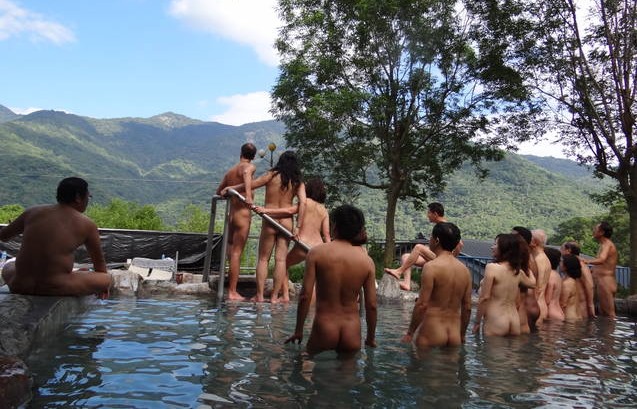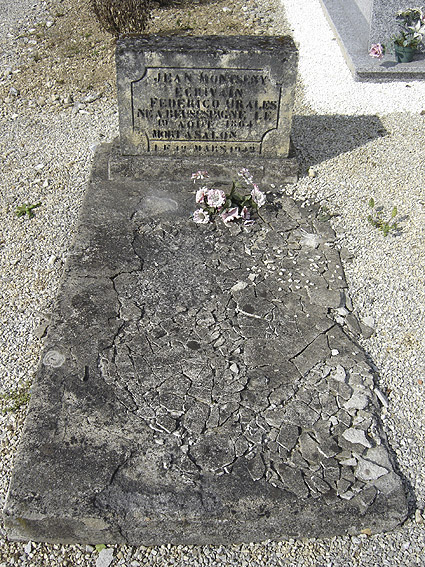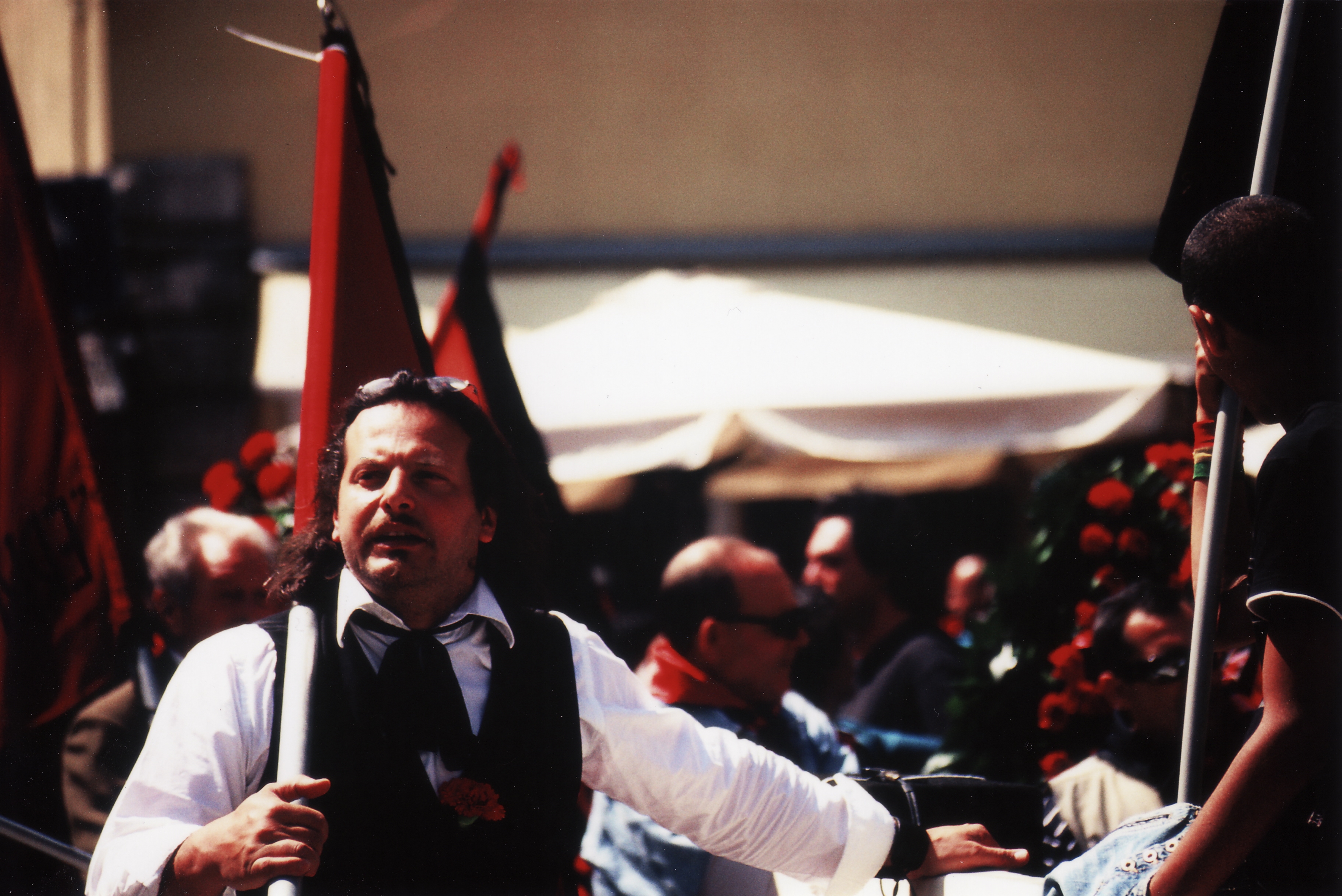|
Émile Gravelle
Émile Gravelle (1855–1920) was a French people, French individualist anarchist and naturist activist, writer and painter.Etudes Jean-Jacques Rousseau MusĂ©e Jean-Jacques Rousseau - 1996 Le fondateur du Naturianisme est Émile Gravelle. NĂ© en 1855 Ă Douai, il a quarante ans quand il crĂ©e ce mouvement. Il est alors artiste- peintre et dessinateur, et il a dĂ©cidĂ© de consacrer son art Ă la cause anarchiste." He published the review ''L'État Naturel'' (1894–1898) and collaborated with Henri Zisly and Henri Beylie on ''La Nouvelle HumanitĂ©'', ''Le Naturien'' (1898), ''Le Sauvage'' (1898–1899), ''L'Ordre Naturel'' (1905), and ''La Vie Naturelle'' (1907–1914). His ideas were important in individualist anarchist circles in France as well as Spain, where Federico Urales (pseudonym of Joan Montseny) promoted the ideas of Gravelle and Zisly in ''La Revista Blanca'' (1898–1905). References 1855 births 1920 deaths Anarchist writers Egoist anarchists ... [...More Info...] [...Related Items...] OR: [Wikipedia] [Google] [Baidu] |
French People
French people () are a nation primarily located in Western Europe that share a common Culture of France, French culture, History of France, history, and French language, language, identified with the country of France. The French people, especially the native speakers of langues d'oĂŻl from northern and central France, are primarily descended from Roman people, Romans (or Gallo-Romans, western European Celts, Celtic and Italic peoples), Gauls (including the Belgae), as well as Germanic peoples such as the Franks, the Visigoths, the Suebi and the Burgundians who settled in Gaul from east of the Rhine after the fall of the Roman Empire, as well as various later waves of lower-level irregular migration that have continued to the present day. The Norsemen also settled in Normandy in the 10th century and contributed significantly to the ancestry of the Normans. Furthermore, regional ethnic minorities also exist within France that have distinct lineages, languages and cultures such ... [...More Info...] [...Related Items...] OR: [Wikipedia] [Google] [Baidu] |
Individualist Anarchist
Individualist anarchism or anarcho-individualism is a collection of anarchist currents that generally emphasize the individual and their will over external determinants such as groups, society, traditions, and ideological systems. Individualist anarchism can be divided into two main distinct movements, each with its own ideological orientations and choices. On one hand, there is American individualist anarchism, which began with Warren in the 1860s. It focuses primarily on economic freedom, drawing upon Stirner's egoist anarchism and Proudhon's mutualism, and develops perspectives that are notably financial in nature. Most American individualist anarchists of the 19th century advocated mutualism, a libertarian socialist form of market socialism, or a free-market socialist form of classical economics. American individualist anarchists are opposed to property that violates the entitlement theory of justice, that is, gives privilege due to unjust acquisition or exchange ... [...More Info...] [...Related Items...] OR: [Wikipedia] [Google] [Baidu] |
Naturist
Naturism is a lifestyle of practicing non-sexual social nudity in private and in public; the word also refers to the cultural movement which advocates and defends that lifestyle. Both may alternatively be called nudism. Though the two terms are broadly interchangeable, ''nudism'' emphasizes the practice of nudity, whilst ''naturism'' highlights an attitude favoring harmony with nature and respect for the environment, into which that practice is integrated. That said, naturists come from a range of philosophical and cultural backgrounds; there is no single naturist ideology. Ethical or philosophical nudism has a long history, with many advocates of the benefits of enjoying nature without clothing. At the turn of the 20th century, organizations emerged to promote social nudity and to establish private campgrounds and resorts for that purpose. Since the 1960s, with the acceptance of public places for clothing-optional recreation, individuals who do not identify themselves as na ... [...More Info...] [...Related Items...] OR: [Wikipedia] [Google] [Baidu] |
Henri Zisly
Henri Zisly (born in Paris, 2 November 1872; died in 1945) was a French individualist anarchist and naturist. He participated alongside Henri Beylie and Émile Gravelle in many journals such as ''La Nouvelle Humanité'' and ''La Vie Naturelle'', which promoted anarchist-naturism. Zisly's political activity, "primarily aimed at supporting a return to 'natural life' through writing and practical involvement, stimulated lively confrontations within and outside the anarchist environment. Zisly vividly criticized progress and civilization, which he regarded as 'absurd, ignoble, and filthy.' He opposed industrialization (arguing that machines were inherently authoritarian), defended nudism, advocated a non-dogmatic and non-religious adherence to the 'laws of nature,' recommended a lifestyle based on limited needs and self-sufficiency, and disagreed with vegetarianism Vegetarianism is the practice of abstaining from the Eating, consumption of meat (red meat, poultry, seafood, in ... [...More Info...] [...Related Items...] OR: [Wikipedia] [Google] [Baidu] |
Henri Beylie
Henri Félix Camille Beaulieu (known as Henri Beylie; 30 November 1870 – 1944) was a French accountant, naturist, anti-militarist, anarchist and then communist. He wrote many articles in radical journals. In his later years he was active in the Committee of Social Defence (CDS), an organization that helped political prisoners and exiles. Early years Henri Félix Camille Beaulieu was born in Paris on 30 November 1870. His parents were Charles Beaulieu and Jeanne Beylie. a seamstress. At a young age, he was a non-commissioned officer in the African Battalions, but was dismissed for "collective revolt and protest". On returning to the metropolis, he mixed in libertarian circles in Montmartre and began to publish articles in ''La Revue Libertaire'' (1893–94). After anarchists staged several attacks in Paris in 1893, there was a wave of arrests. In January 1894, Beylie, Henri Gauche and Henri Guerin were arrested questioned by a judge. Gauche and Guerin were the editors of ''La revu ... [...More Info...] [...Related Items...] OR: [Wikipedia] [Google] [Baidu] |
Federico Urales
Joan Montseny i Carret (1864–1942), who also wrote under the pseudonym Federico Urales, was a Catalan anarchist activist and journalist from Spain. Early life and career Joan Montseny was born in Reus, Spain, in 1864. He was originally a cooper and led a union of coopers in the late 1880s. Montseny studied to become a teacher and ran a school in his hometown in 1891. In the early 1890s, Montseny's activity in the anarchist movement led to several arrests and his involvement in the Montjuïc trial and subsequent June 1897 exile to London, though later that year, he illegally returned to Madrid to press for judicial review of the trial. Montseny became a journalist. He worked on Alejandro Lerroux's ''El Progreso'' before founding the periodicals ''La Revista Blanca'' (1898) and ''Tierra y Libertad'' (1902). The success of these publications led to relationships with notable intellectuals, though Montseny was forced away from the papers in 1905 and 1904, respectively. He sp ... [...More Info...] [...Related Items...] OR: [Wikipedia] [Google] [Baidu] |
La Revista Blanca
''La Revista Blanca'' was a Spanish individualist anarchist magazine of sociology and arts published in Madrid by Joan Montseny (Federico Urales) and Teresa Mañé (Soledad Gustavo) from 1898 to 1905 and in Barcelona Barcelona ( ; ; ) is a city on the northeastern coast of Spain. It is the capital and largest city of the autonomous community of Catalonia, as well as the second-most populous municipality of Spain. With a population of 1.6 million within c ... from June 1923 to August 1936. References Bibliography * * External linksDigitalized numbers of ''La Revista Blanca'' at the Spanish National Library 1898 establishments in Spain 1936 disestablishments in Spain [...More Info...] [...Related Items...] OR: [Wikipedia] [Google] [Baidu] |
1855 Births
Events January–March * January 1 – Ottawa, Ontario, is incorporated as a city.' * January 5 – RamĂłn Castilla begins his third term as President of Peru. * January 23 ** The first bridge over the Mississippi River opens in modern-day Minneapolis, a predecessor of the Father Louis Hennepin Bridge. ** The 8.2–8.3 Wairarapa earthquake claims between five and nine lives near the Cook Strait area of New Zealand. * January 26 – The Point No Point Treaty is signed in the Washington Territory. * January 27 – The Panama Railway becomes the first railroad to connect the Atlantic and Pacific Oceans. * January 29 – Lord Aberdeen resigns as Prime Minister of the United Kingdom, over the management of the Crimean War. * February 5 – Lord Palmerston becomes Prime Minister of the United Kingdom. * February 11 – Kassa Hailu is crowned Tewodros II, Emperor of Ethiopia. * February 12 – Michigan State University (the "pioneer" ... [...More Info...] [...Related Items...] OR: [Wikipedia] [Google] [Baidu] |
1920 Deaths
Events January * January 1 ** Polish–Soviet War: The Russian Red Army increases its troops along the Polish border from 4 divisions to 20. ** Kauniainen in Finland, completely surrounded by the city of Espoo, secedes from Espoo as its own market town. * January 7 – Russian Civil War: The forces of White movement, Russian White Admiral Alexander Kolchak surrender in Krasnoyarsk; the Great Siberian Ice March ensues. * January 10 ** The Treaty of Versailles takes effect, officially ending World War I. ** The League of Nations Covenant enters into force. On January 16, the organization holds its first council meeting, in Paris. * January 11 – The Azerbaijan Democratic Republic is recognised de facto by European powers in Palace of Versailles, Versailles. * January 13 – ''The New York Times'' Robert H. Goddard#Publicity and criticism, ridicules American rocket scientist Robert H. Goddard, which it will rescind following the launch of Apollo 11 in 1969. * Janua ... [...More Info...] [...Related Items...] OR: [Wikipedia] [Google] [Baidu] |
Anarchist Writers
Anarchism is a political philosophy and movement that seeks to abolish all institutions that perpetuate authority, coercion, or hierarchy, primarily targeting the state and capitalism. Anarchism advocates for the replacement of the state with stateless societies and voluntary free associations. A historically left-wing movement, anarchism is usually described as the libertarian wing of the socialist movement ( libertarian socialism). Although traces of anarchist ideas are found all throughout history, modern anarchism emerged from the Enlightenment. During the latter half of the 19th and the first decades of the 20th century, the anarchist movement flourished in most parts of the world and had a significant role in workers' struggles for emancipation. Various anarchist schools of thought formed during this period. Anarchists have taken part in several revolutions, most notably in the Paris Commune, the Russian Civil War and the Spanish Civil War, whose end mark ... [...More Info...] [...Related Items...] OR: [Wikipedia] [Google] [Baidu] |
Egoist Anarchists
Egoism is a philosophy concerned with the role of the self, or , as the motivation and goal of one's own action. Different theories of egoism encompass a range of disparate ideas and can generally be categorized into descriptive or normative forms. That is, they may be interested in either describing that people ''do'' act in self-interest or prescribing that they ''should''. Other definitions of egoism may instead emphasise action according to one's will rather than one's self-interest, and furthermore posit that this is a truer sense of egoism. The ''New Catholic Encyclopedia'' states of egoism that it "incorporates in itself certain basic truths: it is natural for man to love himself; he should moreover do so, since each one is ultimately responsible for himself; pleasure, the development of one's potentialities, and the acquisition of power are normally desirable." The moral censure of self-interest is a common subject of critique in egoist philosophy, with such judgments ... [...More Info...] [...Related Items...] OR: [Wikipedia] [Google] [Baidu] |
French Anarchists
Anarchism in France can trace its roots to thinker Pierre-Joseph Proudhon, who grew up during the Restoration and was the first self-described anarchist. French anarchists fought in the Spanish Civil War as volunteers in the International Brigades. According to journalist Brian Doherty, "The number of people who subscribed to the anarchist movement's many publications was in the tens of thousands in France alone." History The origins of the modern anarchist movement lie in the events of the French Revolution, which the historian Thomas Carlyle characterized as the "open violent Rebellion, and Victory, of disimprisoned Anarchy against corrupt worn-out Authority". Immediately following the storming of the Bastille, the communes of France began to organize themselves into systems of local self-government, maintaining their independence from the State and organizing unity between communes through federalist principles. Direct democracy was implemented in the local districts of eac ... [...More Info...] [...Related Items...] OR: [Wikipedia] [Google] [Baidu] |








